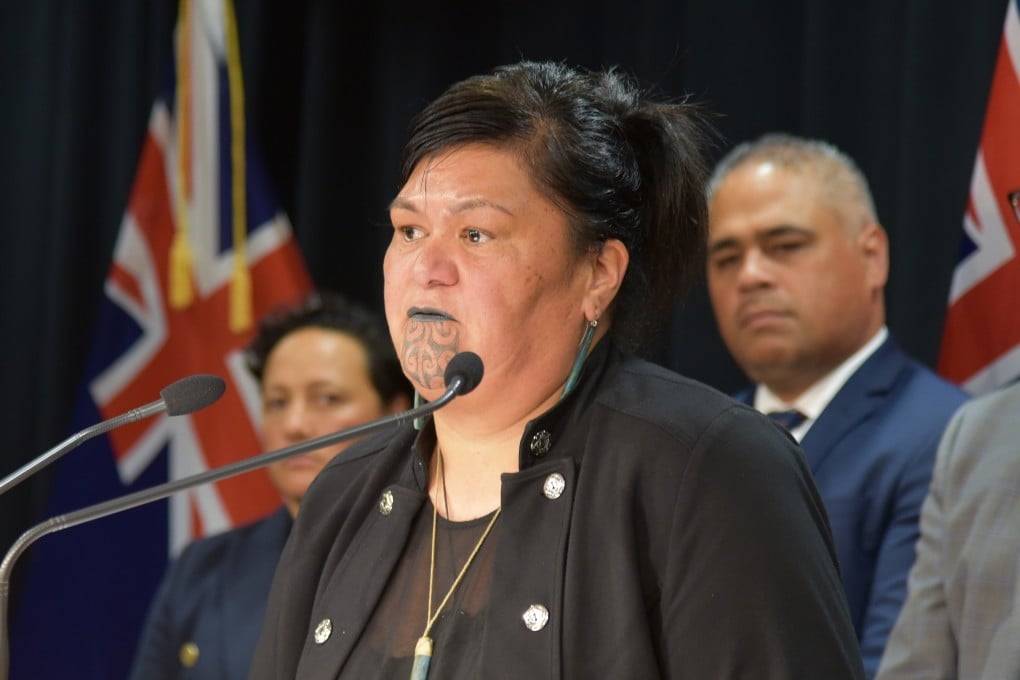Advertisement
Australia and New Zealand play down differences over China and the ‘Five Eyes’
- Foreign ministers Marise Payne and Nanaia Mahuta stress ‘common values’, as Wellington reiterates hesitancy over using intelligence alliance to confront Beijing on human rights
- Australia’s ties with China have nosedived since its call for a probe into the origins of the coronavirus. New Zealand recently upgraded its free-trade pact with Beijing
Reading Time:4 minutes
Why you can trust SCMP
12

Australia and New Zealand on Thursday played down their differences on managing ties with China, even as Wellington’s top diplomat reiterated hesitancy about using a five-nation intelligence alliance to confront Beijing on human rights.
Australian Foreign Minister Marise Payne and her New Zealand counterpart Nanaia Mahuta stressed their countries’ “common values” amid public signs of division on expanding the remit of the “Five Eyes” alliance that also includes the United States, Britain and Canada.
Australian Foreign Minister Marise Payne and her New Zealand counterpart Nanaia Mahuta stressed their countries’ “common values” amid public signs of division on expanding the remit of the “Five Eyes” alliance that also includes the United States, Britain and Canada.
Payne, who began a three-day visit to New Zealand on Wednesday, said the neighbours shared “broadly the same vision” of the region, but acknowledged it was up to Wellington to choose the “forum they themselves determine appropriate and consistent with their respective national interest”.
“We are very close friends and neighbours, Australia and New Zealand, but importantly, each of us is a proud sovereign nation, with our own independently held views,” Payne said during a press conference held after the first face-to-face talks between the allies since the coronavirus pandemic.
“We are very close friends and neighbours, Australia and New Zealand, but importantly, each of us is a proud sovereign nation, with our own independently held views,” Payne said during a press conference held after the first face-to-face talks between the allies since the coronavirus pandemic.

“That is a good thing and we would not have it any other way. But our shared values and principles, as liberal democracies, are so deep and enduring that our areas of agreement vastly outnumber any areas of difference.”
Asked whether Canberra would like to see Wellington take a tougher line on Beijing, Payne said she had learned in her role “not to give advice to other countries”.
Payne, whose visit came after the countries resumed a two-way quarantine-free travel bubble on Monday, said that while Australia’s relationship with China was important and benefited both countries, Beijing’s outlook and engagement with the world had changed.
Canberra had to “adapt to those new realities” and had pursued a policy based on “clarity and consistency and confidence”, said Payne, who on Wednesday vetoed the state of Victoria’s participation in China’s Belt and Road Initiative, prompting protests from Beijing.
Advertisement
A joint statement released by the two ministers after their talks made no mention of China by name.

Payne’s remarks came after Mahuta said on Monday that Wellington was “uncomfortable” about expanding the remit of the alliance beyond intelligence-sharing and would “prefer to look for multilateral opportunities to express our interests”.
Mahuta on Thursday reiterated those concerns, while stressing the neighbours’ “common views on regional and global issues”.
“The Five Eyes arrangement is about a security and intelligence framework, and it’s not necessary all the time, on every issue to invoke Five Eyes as your first port of call in terms of creating a coalition of support around particular issues in the human rights space, for example,” she said.
The anglophone alliance, which emerged during World War II, has issued a number of joint statements in recent months expressing concerns about Beijing’s tightening controls in Hong Kong, including the imposition of a sweeping national security law that outlaws broadly defined crimes of secession, subversion, terrorism and collusion with foreign forces.
Advertisement
Select Voice
Select Speed
1.00x